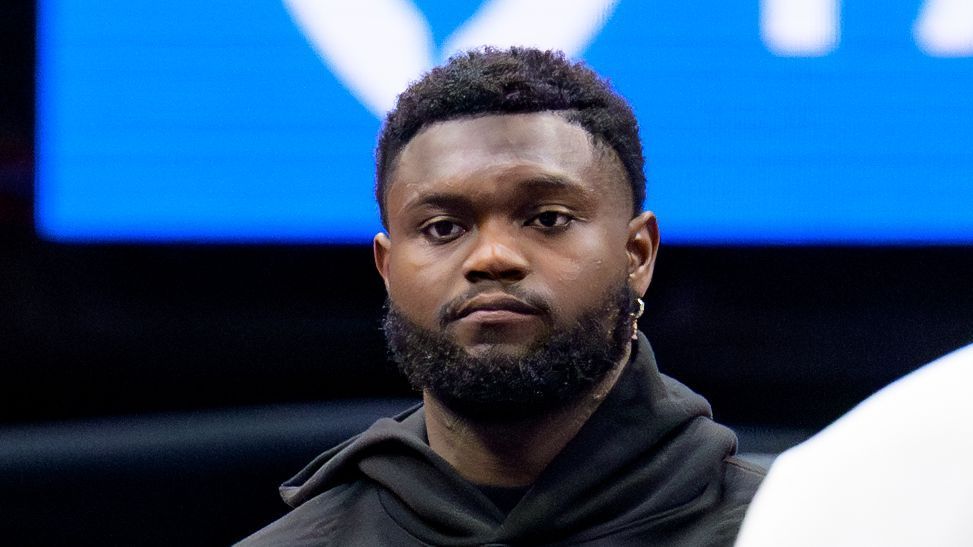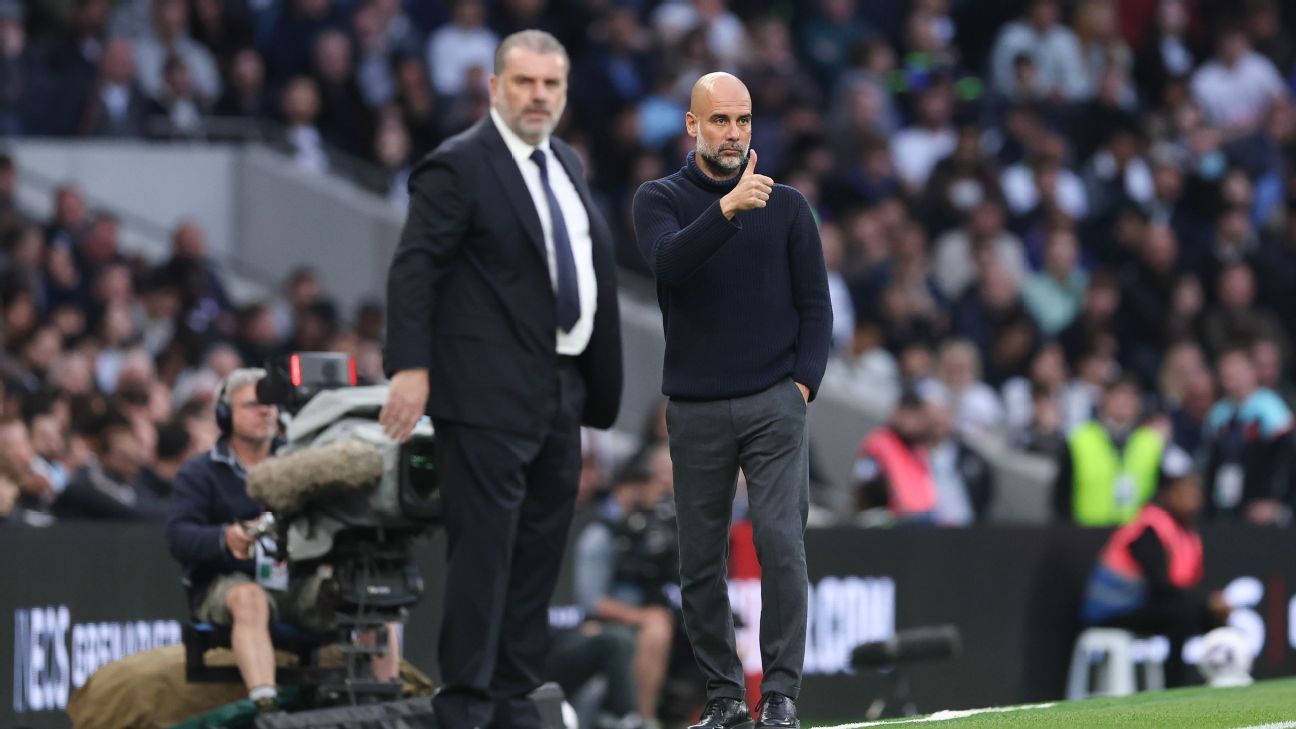
Richard Thompson is counting the days until his term as chair of the England and Wales Cricket Board ends. Not because he can’t wait to leave the Lord’s hotseat, but because he knows there is so much on his agenda before he steps down in 2027. That to-do list includes reestablishing the game in state schools, improving the sport’s record on race and discrimination, winning back the Ashes and, most urgently, presiding over an auction of stakes in The Hundred that promises to transform cricket in this country.
“This is an opportunity to leave a legacy in something that’s defined me and shaped my life,” says Thompson, who spent 12 years as chairman of Surrey CCC and heads up M&C Saatchi’s UK business as his day job. “When you’ve got – as I worked out – 1870 days, you don’t want to waste a day. I’m two years in and I’m very focused on outcomes.
But also I think good leaders should be making decisions that plant seeds for the tree that provides shade for everyone else, so it’s not just about this five-year period. “I think I have found myself in an extraordinary moment for sport and for cricket. Even two years ago, I wouldn’t have thought we would be quite where we are today.
And that’s exciting.” Perhaps the most pressing concern right now is the Hundred sale . The ECB devised the competition to win over new fans, elevate the women’s game and rival the Indian Premier League but it remains a highly divisive topic.
Whether it saves or sinks English cricket may depend greatly on whether the auction of 49 per cent stakes in the eight teams delivers more to the wider game than the £350m that Thompson and the ECB rejected for control of The Hundred in his first week in charge. “I’d been in the role two days and a letter arrived from [fund manager] Bridgepoint offering to buy the tournament. It was quite caveated, it meant optioning every team,” Thompson, 58, recalls.
“There were a number of counties at the time that were saying ‘you’ve got to do this for £350m’, but I really felt strongly we shouldn’t. We came up with an alternative plan. “We want to control the competition.
We want to control the schedule. However, getting a new ownership model to one of the four formats felt doable, so that’s what we’ve done. “Our target was to raise £350m from sales.
I think we’re going to exceed that comfortably, but we’ve still got some way to go.” The Hundred auction is being run with The Raine Group, sport’s go-to salespeople , and is now in the second of four stages. More than 100 parties took up the opportunity to see the data room, with those rumoured to be interested including India’s richest family, the Ambanis, Manchester United owners the Glazers and CVC Capital Partners.
“I think all of us have been genuinely shocked over the quality and quantity of interest,” he says. Thompson adds that “there’s hardly anyone in sport that isn’t at the table” and that international investors in particular recognise the latent value at a relatively low price: “It’s only going to be worth more and you’re only going to get one chance.” Thompson rejects the idea that the Hundred sale represents a changing of the guard.
He would like some teams to remain British-owned but talks up the expertise of US investors – “We invented modern team sport, but franchise sport was invented by the Americans” – and insists that, anyway, the franchises will largely remain part of member-owned English clubs. Still, he concedes “it’s a reset moment, for sure”, adding: “A lot of the next 10 years will be determined almost by what happens in the next 10 weeks. The new investment model, the recapitalisation of the game, I think that will determine the future direction.
” The other huge task looming over Thompson’s tenure is cleaning up English cricket following widespread allegations of racism in the county game. His stated aim is to make it the country’s most inclusive sport and the ECB recently released details of the “significant progress” it has made in the year since a watershed Independent Commission for Equity on Cricket report . “I feel that two years ago, we didn’t have a lot of trust and the trust is there now, but you can never take that for granted,” he says.
“I’ve stuck my neck out. It’s a big ambition. But I feel we should.
I feel we could. I feel we will.” English cricket remains predominantly white and affluent partly because the game has been squeezed out of state schools, but Thompson believes the ECB’s plan to build 22 all-weather domes – boosted by chancellor Rachel Reeves this month sticking by a £35m pledge from the previous government – will help to address that.
“Three million kids will play cricket off the back of this initiative that would never have had the chance before,” he says. “I do believe if you can’t see it, you can’t be it but I think the initiatives that come in around state education – with support from the government, because you can’t do that without their support – I think that will make a difference.” The cricket domes can also help with another of the ECB’s main aims: encouraging more casual cricketers to play short-form versions recreationally.
“If we could get indoor cricket coming back in we will,” he says, putting on his sports marketing hat. “I think you’ll find a lot of sports looking for a Diet Coke of their full-fat version.” Thompson’s background in the sports business – he established his own talent agency before selling to M&C Saatchi in 2013 – means he is better placed than most to understand the market from both sides.
He also chairs production company South Shore, which made the hit BBC show Freddie Flintoff’s Field of Dreams. “The worlds do overlap, I realised, and being chair of [M&C Saatchi] does have a benefit to ECB and vice versa, and gives you so much insight into what media and consumers are doing in a way that no other day job could,” he says. Thompson is able to juggle M&C Saatchi’s rapid expansion in the booming Middle East sports market with English cricket’s many challenges, he says, because he leans on ECB CEO Richard Gould, his old Surrey colleague, and directors including Marks & Spencer chief Katie Bickerstaffe and City grandees Sir Ron Kalifa and Alan Dickinson.
“You cannot run as fast as I have to run if you don’t have good people,” he adds. The job of selling cricket has been made easier by England’s swashbuckling approach to the Test format, adopted under Kiwi head coach Brendon McCullum and captain Ben Stokes, even if he prefers the term “positive cricket” to its popular tag, Bazball: “Sport’s about jeopardy and the jeopardy of Bazball, it’s enthralling. The format has been moved to another level that no one could ever have imagined.
” Sport, as we are frequently reminded, is a results business, however, and Thompson is desperate to see England’s men and women win Ashes series on his watch. Both teams drew last year , meaning the urns stayed in Australian hands, but will get another shot next winter and then again in summer 2027. “I get three bites at this so I sincerely hope we win one,” he says.
“I look back at the margin for error in the previous ones; it’s so fine. But, of course, you don’t want to be the one that doesn’t win the Ashes. It’s happened to many before me, but I’d like to be the first chair to hold the men’s and women’s Ashes.
” Thompson has less than three years to go in what, it is put to him, must be a dream job for a cricket nut. “I think my dream job is probably running Arsenal,” he jokes, but adds: “I love what I do. I’ve been fortunate that I’ve got to my mid 50s, and I still love what I do.
And I think if you’ve got that passion and the ambition still there, you’re very fortunate.”.














